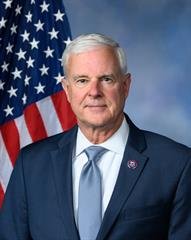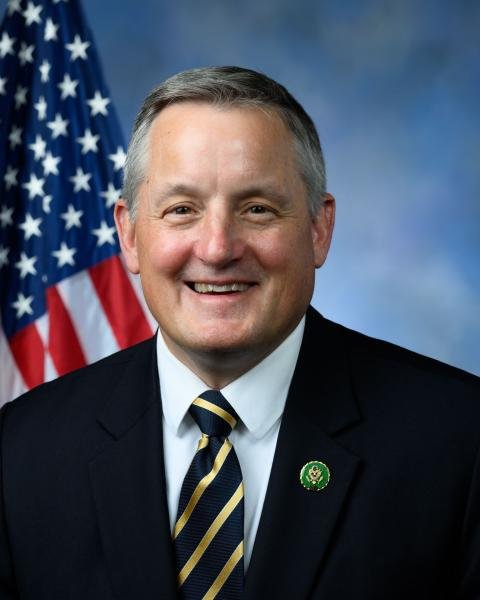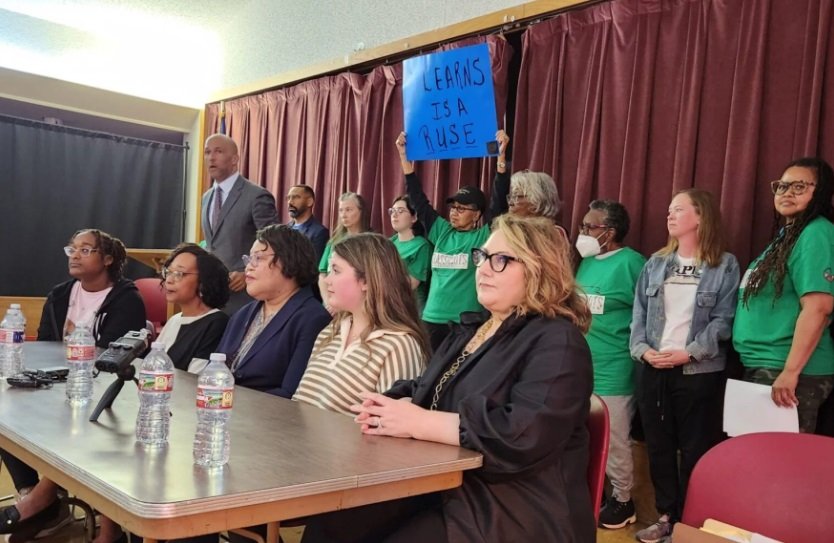Clad in their signature black and white checkerboard pants, SeaCow Robotics Club members Kyri Collins, Abby Wald, Issac Wald, Luke Wald and Sarah Wald, 4-H parent Brandon Collins, and coaches Mike Katsen, Stacy Statler and Tamara Wald gathered with Easterseals Arkansas staff to construct the device on April 5.
“Through our partnership with the SeaCow Robotics Club, we hope to shed light on an exciting opportunity for Arkansas school districts to collaborate with their Robotics, East, or STEM programs in order to assemble assistive technology devices,” said Katelynn Estes, doctor of occupational therapy and assistive technology specialist for Easterseals Arkansas Outreach Program and Technology Services. “This provides educational benefits for both the students receiving the device and for the students assembling the device.”
Estes said the Voice It© device reads RFID, or radio frequency identification, tags. These tags can be placed within everyday objects, tactile symbols, picture cards and more. When the Voice It© scans the tag, it speaks a word or phrase out loud using a prerecorded voice.
“For example, if a user has a tactile symbol representing the word ‘more’ with an RFID card installed, they can use the Voice It© in combination with the tactile symbol to speak the word ‘more,’” Estes said. “The Voice It© can also help individuals with low vision identify common objects around their home, school or work environment, such as medicine bottles.”
Tamara Wald, an occupational therapist and parent volunteer, said she was inspired to get involved after attending a course at Easterseals about helping children with multiple disabilities access assistive technology.
“I thought, ‘Why can’t our robotics club help them produce this assistive technology to get it in the hands of more children?’” Tamara said. “They told us there’s not enough of this technology to go around, especially when it comes to some of the 3-D printed items. We’re learning about 3-D printing as a club, so why not try to partner together? What more practical need is there than helping children?”
Some assembly required
Estes said that the assembled Voice It© device, made by the company VolkSwitch, is not available for purchase. However, the device’s design is available for free under a Creative Commons License. Estes said she 3-D printed many parts for the device, including the casing, which helped save on cost, as did the 4-H members’ assembly.
To assemble the device, 4-H members worked on its electrical circuitry, wired it for audio output, installed its battery, configured the device’s software and more.
“The student volunteers also installed feet on the device, verified it was working as expected and ‘wrote’ RFID tags for our Project Core Symbols,” Estes said.
The Project Core Symbols are a set of 3-D, tactile symbols that represent the 36 words in the Universal Core vocabulary, created by The Center for Literacy and Disability Studies and also licensed under a Creative Commons License.
Estes said that thanks to the collaboration between the SeaCow Robotics Club and Easterseals Outreach Program and Technology Services, the Voice It© device will be available for public school districts in Arkansas to checkout, giving students an opportunity to try out the device before schools invest in purchasing one.
“Through Outreach, we are able to assist public schools and coach teams through a process where they identify features of technology that a particular student requires,” Estes said. “We point them towards specific devices that match the student’s needs, and then the schools may borrow the device in order to ensure data supports the use of the assistive technology. Eventually, they will need to acquire the technology permanently for that student if the trial is successful.”
‘Something for everyone’ in 4-H
Katie West, Saline County extension 4-H agent, said community service projects like this partnership with Easterseals are an important part of 4-H programming.
“Community service brings the children in and makes them feel like a part of that community,” West said. “This helps them become the citizens we need them to be later on, and they’re more likely to lead and figure out what problems they want to address when they’re older.”
Science, technology, engineering and math — or STEM — education is one of the three mission mandates that all Arkansas 4-H project work falls within, West said.
“We have natural resources, wildlife, forestry, electronics — there’s a wide range of programs and activities that children can do,” she said. “This group does robotics, so they’re actually learning technology and coding as well as engineering and how to get things to work.”
Wald said her children have enjoyed the variety of activities and opportunities available in their local 4-H club.
“We are interested in so many things in my family,” Wald said. “Not only does my family participate in the robotics program, but we are also part of a 4-H science club in Bryant, which is led by our wonderful teacher Kristin Higgins, who works in the state extension office. I think 4-H has really opened doors for my children and broadened their horizons to different topics.”
In just one day, West said her 4-H members were involved in three different competitions: the SeaPerch Challenge, which is an underwater robotics competition, a shooting sports competition, and the 4-H Ross Photography Contest.
“All of these were very different, and so are the children who were interested in these competitions,” West said. “Because of that variety, as they grow, they’re able to figure out what might be their best subject. They can get a lot of scholarships and learn new things as they go.
“They won’t start off knowing exactly what they want to be when they grow up, but with 4-H, they can try everything out, see what works and what doesn’t, and know more about what they are good at by the time they’re an adult,” West said.
Mention of product names does not imply endorsement by the University of Arkansas System Division of Agriculture.
For more information about Arkansas 4-H, visit 4h.uada.edu or contact your county 4-H agent at uaex.uada.edu/counties/.
To learn about extension programs in Arkansas, contact your local Cooperative Extension Service agent or visit www.uaex.uada.edu. Follow us on X and Instagram at @AR_Extension. To learn more about Division of Agriculture research, visit the Arkansas Agricultural Experiment Station website: https://aaes.uada.edu. Follow on X at @ArkAgResearch. To learn more about the Division of Agriculture, visit https://uada.edu/. Follow us on X at @AgInArk.




















